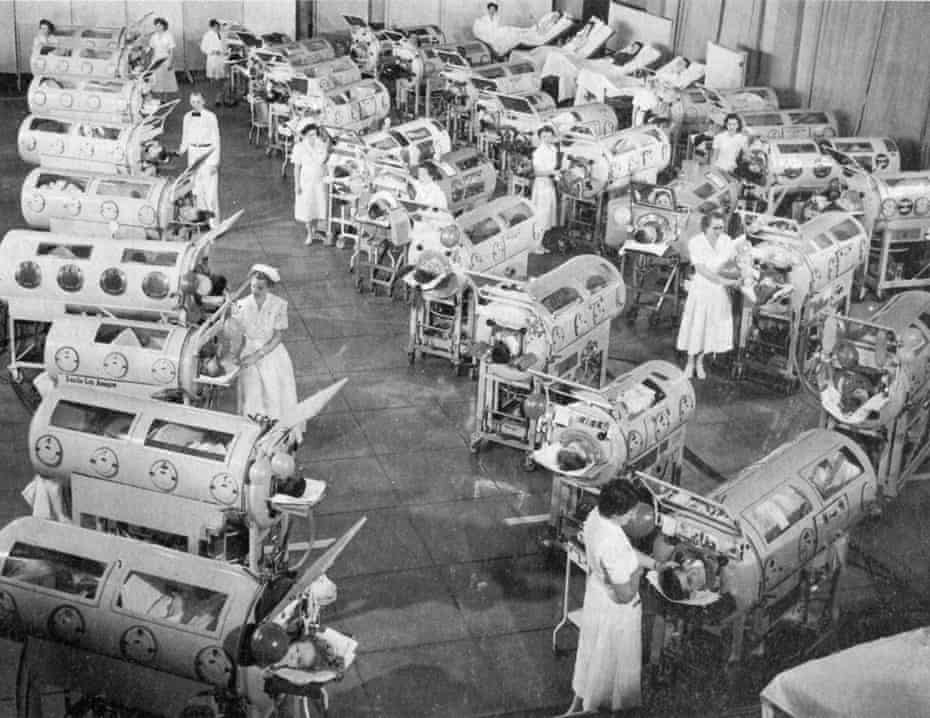Creating Community Through Vaccination
Professor Joe Goldblatt
As most eight year old boys in the nineteen fifties, I followed my parents orders. One Saturday morning they ordered me to get in the car because we were going to the local junior high school. I was curious as to why we would be going to a school on the weekend, however, I obeyed their order.
Five minutes later as the car pulled up to the parking lot I noticed a long queue stretching from the front door of the school and continuing down the sidewalk for almost two city blocks. People in this queue were smiling, laughing, exchanging stories and they all seemed to have a hopeful attitude.
Within a few minutes, my parents, sister and myself entered the school and my sister and I were offered sugar cubes. The sugar cube contained a new miracle drug that would vaccinate me and millions of others so that we would not contract the dreaded polio disease. Recently I have learned that the Mary Poppins song entitled A Spoonful of Sugar Helps the Medicine Go Down was actually inspired by the distribution of life saving sugar cubes to the children of one of the composers of this popular Disney song.
In the same block, where I once lived with my parents, there was another child who was my same age. One evening Papa took me to see him and his parents. Upon entering the living room I remember hearing the sound of a large breathing device with giant pumping bellows and then seeing a giant cylindrical metal container where at one end only the boy’s small head appeared. Above his head was a mirror that allowed him, while on his back and looking toward the ceiling, to see and communicate with the persons who were visiting his home. This young boy was Paul Alexander who today, at 74 years old, is one of only two people in the United States still being treated in an iron lung.

One evening this boy who is named Paul Alexander suffered from a high fever and breathing difficulties followed by aches and pains throughout his body. His parents rushed him to the local hospital in Dallas, Texas and just as the doctors were about to give up, a surgeon performed a life saving tracheotomy so that he could breathe. When he awoke from the operation, he was inside an oxygen tent and when it was removed the scene he witnessed was similar to the one above wherein he was surrounded by dozens of very sick children in iron lungs.
Paul eventually was able to return to his home and that is where I first met him. Later in life he applied to attend law school and due to his personal determination he was finally admitted and he subsequently became a successful lawyer. He has recently written his memoir entitled Three Minutes for a Dog. The title is based upon the incentive a friendly and determined nurse gave Paul as a child to encourage him learn to breathe on his own for three minutes and then she would let him have a new puppy. Paul got his puppy.
The Guardian newspaper has recently published a touching profile about Paul’s struggles and triumphs that I surprisingly came across while thinking about our own present day struggles with Covid – 19. I trembled when I read Paul’s story as the last time I saw him was as as a boy in his iron lung. His story brought back many memories of how during an earlier age communities actually worked together to try and eradicate disease and as a result of this work, the lasting impact was that a stronger community evolved from these efforts. Here is The Guardian article about Paul Alexander: https://www.theguardian.com/society/2020/may/26/last-iron-lung-paul-alexander-polio-coronavirus
As I listen to the political parties in my adopted country of Scotland argue about the speed of delivery of the Covid – 19 vaccine, I am reminded of a better and gentler time when parents, still grateful that their children were healthy, queued up together creating a brief community bonding experience and while seeking a miracle vaccine they received something just as important. The ritual of coming together to protect everyone brought them all closer together as one human family. As Paul Alexander told The Guardian reporter ” The lesson of polio – and of every time we are confronted by our own terrible fragility and survive – is that sometimes we need to remember.”
Perhaps today we should remember this when we receive our letter to report for our vaccine and while I am waiting patiently for my letter, I shall now go and telephone my old friend Paul Alexander. It is time for a reunion.
Professor Joe Goldblatt is Emeritus Professor of Queen Margaret University and he was born in 1952 in Dallas, Texas the same year the polio vaccine was first discovered.
